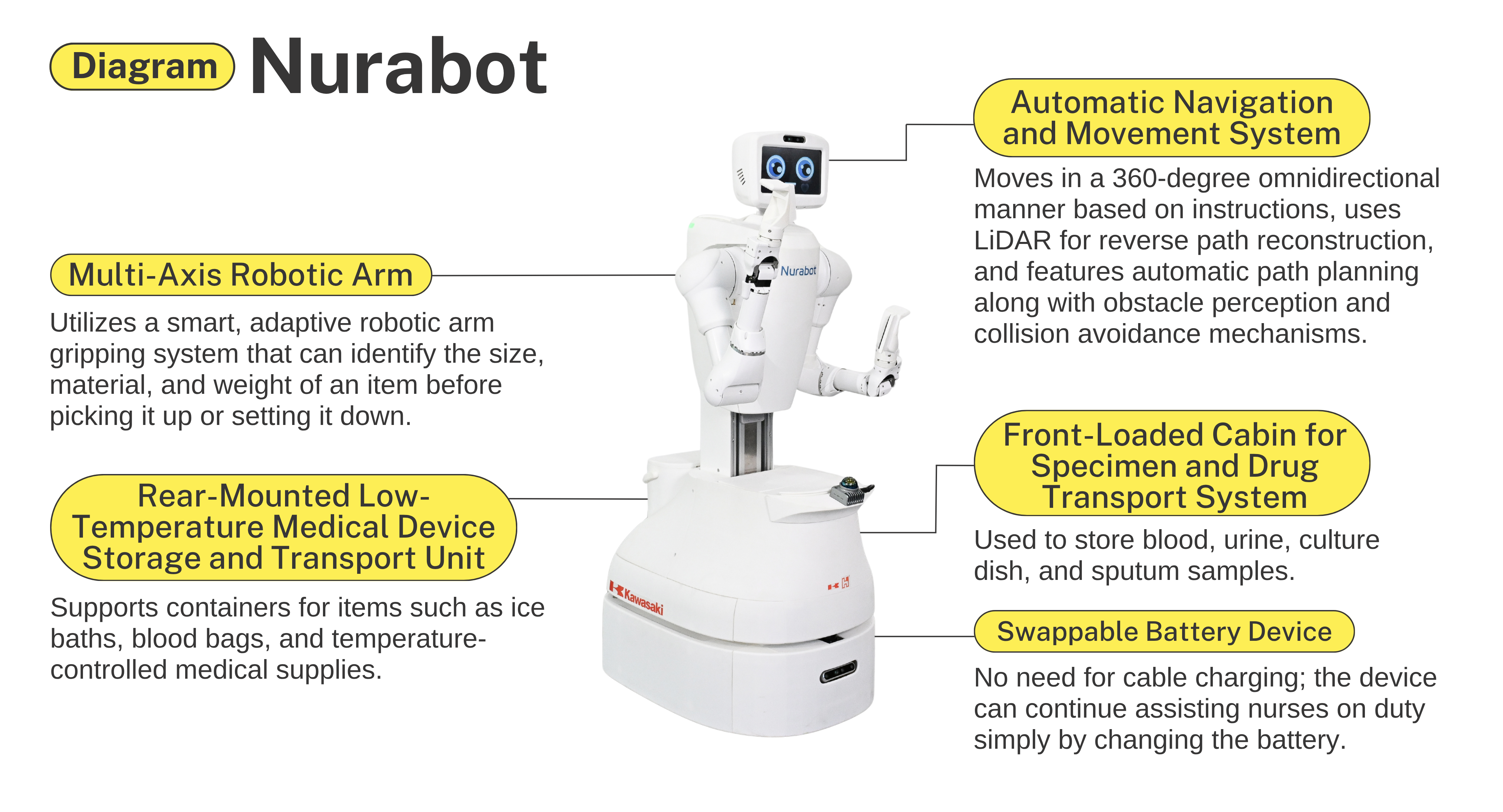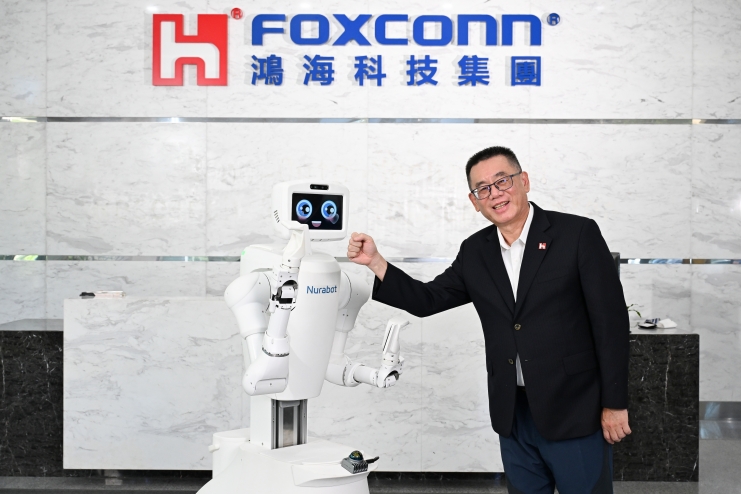
100 Nurses and NT$30 Billion in Computing Power Fuel Foxconn’s Nurabot
2025-10-23
Source: IBMI
The Technology Powering Nurabot
At its core, the Nurabot is a sophisticated autonomous mobile robot (AMR) engineered to address the specific pain points identified in the user research. Its primary function is to reduce the workload of nursing staff by autonomously delivering blood and urine specimens and carrying temperature-sensitive blood bags in a dedicated, low-temperature storage trunk. To guarantee security and accuracy, the robot is equipped with biometric mechanisms, ensuring that critical medical supplies are delivered to the correct person at the right location, every time.

One of Nurabot’s most impressive features is its seamlessly integrated four-cloud architecture, built on NVIDIA’s three computing platforms—Omniverse, Isaac Sim, and Jetson—and directly connected to the hospital HIS system to enable automated task dispatching. While this may appear straightforward, it is powered by a complex, multi-layered computing framework that Barry Chiang poetically described as a “chorus."
To achieve this perfect harmony, Nurabot leverages four distinct "clouds" working in unison:
1. FoxBrain: Foxconn’s proprietary large language model, which serves as the robot’s central cognitive engine.
2. Digital Twin Environment (Omniverse): A collaborative simulation and testing environment built on NVIDIA Omniverse, enabling continuous validation and optimization of Nurabot’s performance through digital twin modeling.
3. NVIDIA Jetson AGX Orin: This powerful AI-at-the-edge computing platform allows Nurabot to process sensory data in real time, enabling it to navigate complex hospital environments, avoid obstacles, and make immediate, safe decisions.
4. The Hospital's Private Cloud (HIS): This system integrates the robot directly into the hospital's internal network, allowing it to receive orders and securely access necessary information.
In a hospital environment that operates 24/7, reliability is paramount. Nurabots are designed for continuous service, powered by swappable batteries that can be exchanged instantly at a charging station. This simple but critical feature ensures that a Nurabot is always ready for its next mission, minimizing downtime and maintaining the flow of operations.
Aligning with Taiwan's National Vision
Foxconn is strategically launching the Nurabot service in collaboration with key medical institutions, including Taichung Veterans’ General Hospital and the Matzu Hospital in Baishatun. This initial rollout has already generated significant interest, with major hospitals like Shin Kong Hospital and Kaohsiung Medical School Hospital expressing a desire to collaborate.

Barry Chiang, Chief of Digital Health and President of Foxconn's B Business Group.
The timing of this initiative could not be more perfect, as it aligns directly with Taiwan’s Healthy Taiwan Cultivation Plan. This five-year, NT$48.9 billion (US$1.61 billion) government initiative is aimed at accelerating the digital transformation of the country’s medical landscape. While many hospitals are eager to participate and secure a portion of the funding, very few qualified providers are capable of delivering a comprehensive, full-scale solution like the one being offered by Foxconn.
The Nurabot is just one piece of this larger vision. Foxconn has also collaborated with hospitals like New Taipei Municipal TuCheng Hospital and Taipei Veterans’ General Hospital to build cancer and disease datasets for AI models called CoDoctor AI. This work is a testament to the company’s broader 3+3+3 strategy, which identifies digital health and robotics as two of its three future megatrends, with AI as one of its core technologies. By leveraging its vast computing power and infrastructure, Foxconn is positioning itself as the ideal partner for hospitals seeking to qualify for government funding and lead the charge in the digital transformation of healthcare.
The deployment of Nurabot is a tangible manifestation of Foxconn's strategic evolution. It’s not just about building a product; it’s about pioneering a new model for healthcare that could address critical global challenges like nursing shortages and burnout. As Nurabot begins its service in Taiwan, it will serve as a powerful proof of concept for a future where technology empowers, rather than replaces, human caregivers.
🔹 Learn more about the products ▸ https://ibmi.pse.is/89q5ql
🔹 Experience and interact with more robots in person ▸ https://ibmi.pse.is/89q68z